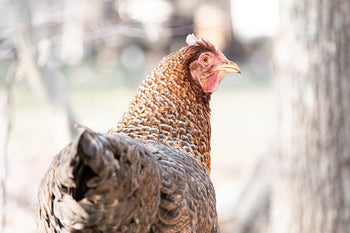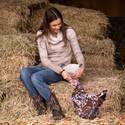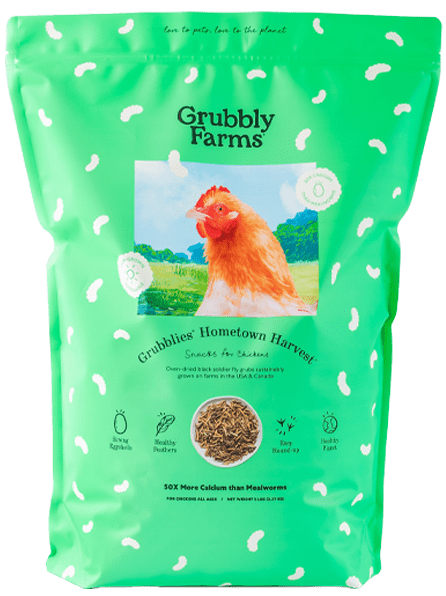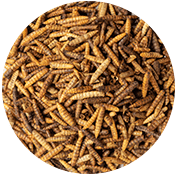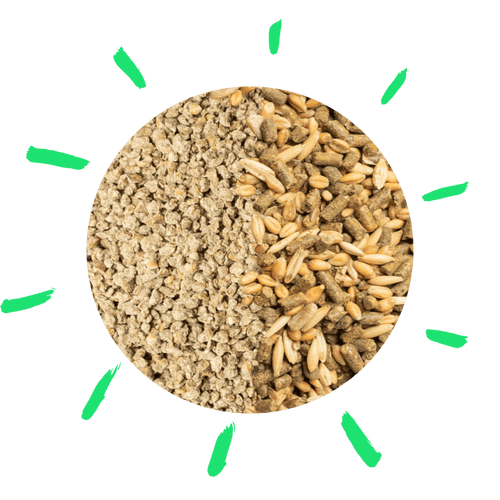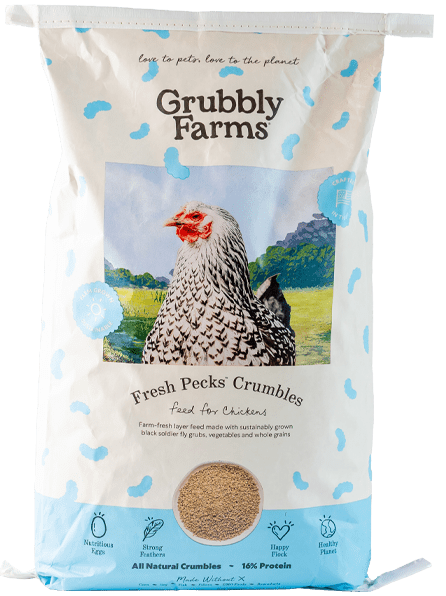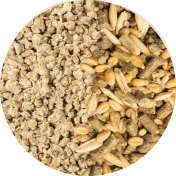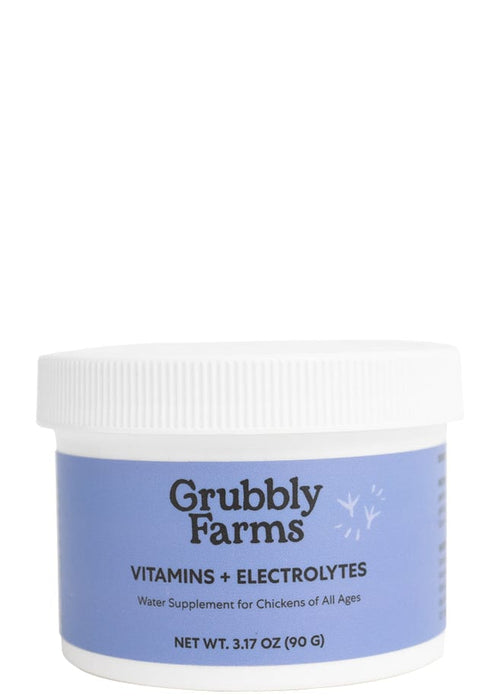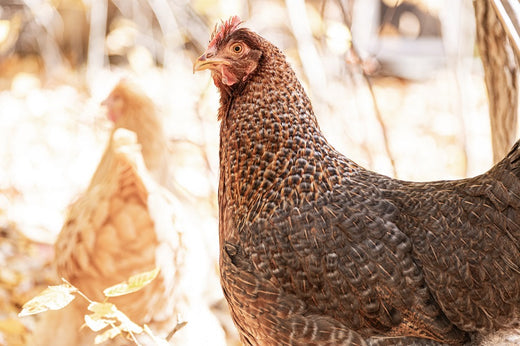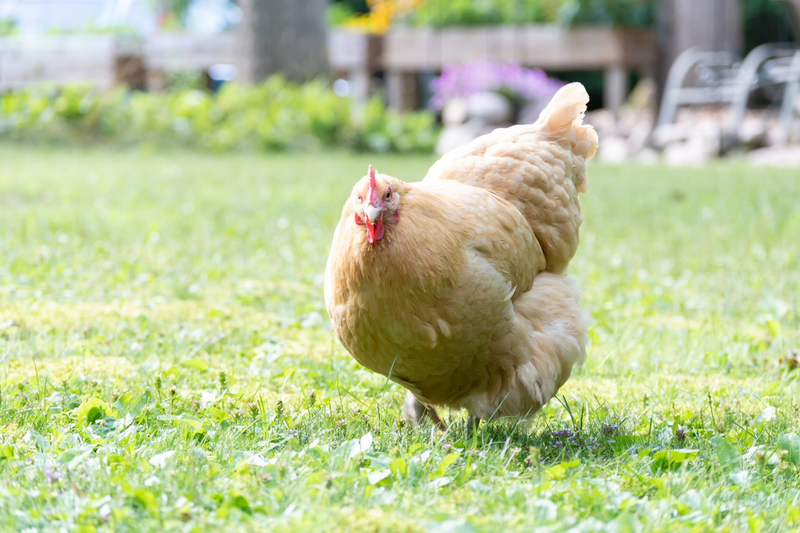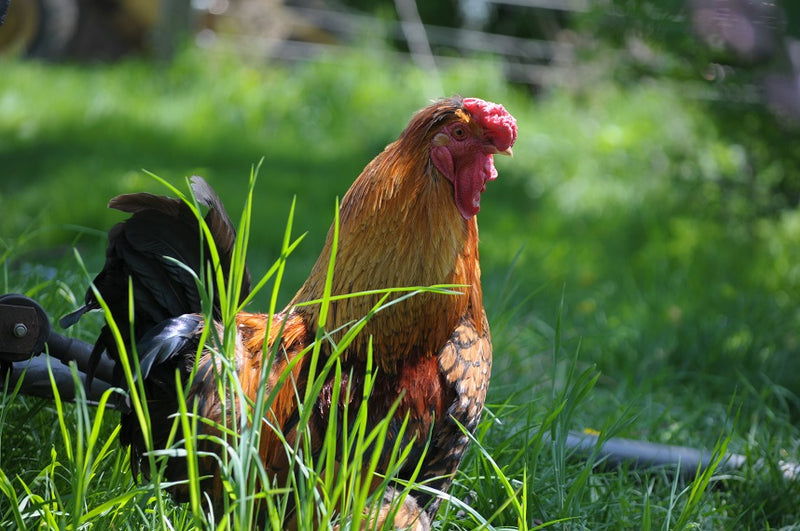Mycoplasma is a type of bacteria that causes respiratory distress in chickens (and other species of fowl). This bacterial infection is extremely common, so learning how to recognize, treat, and prevent it will help you raise a healthy backyard flock.
What is Mycoplasma?
Mycoplasma, or mycoplasmosis, refers to a complex of diseases caused by Mycoplasma bacteria, which are the smallest self-replicating organisms in existence (1). One factor that makes Mycoplasma so unique (and challenging) is that it does not have a cell wall. That means it cannot be treated with antibiotics that work by inhibiting the cell wall development of other infectious bacteria (1).
Mycoplasma infections rarely result in death, though there are two main infections that Mycoplasma bacteria cause in chickens: chronic respiratory disease and infectious synovitis. Mycoplasma gallisepticum bacteria cause chronic respiratory disease (CRD) and air sac disease. Mycoplasma synoviae bacteria cause infectious synovitis, and can also lead to breast blister infections.
At one point, mycoplasma infections were so common that all chickens were carriers of the bacteria. Chickens would become infectious in response to stress, so the illness was often called ‘stress disease’. There are now ‘mycoplasma-free’ chickens available. However, that does not mean they are immune to the disease, and they can still become carriers or get infected when exposed to the bacteria.

How Does Mycoplasma Spread?
Mycoplasmosis spreads through direct contact with infectious birds. The respiratory discharge of infected chickens can contaminate dust, dander, and debris, transmitting the disease when these particles are inhaled. Mycoplasmosis can also spread through contact with contaminated equipment, shoes, clothing, or tools. Chickens who survive mycoplasma will become immune to future infections; however, they remain carriers of the bacteria and can spread the disease to other birds in the flock.
Some chicken breeds or strains are more resistant to the Mycoplasma bacteria than others. Breeders can induce mycoplasma resistance by selecting breeding stock that is not infectious. Since mycoplasma infections can be passed down through hatching eggs (3), the breeding parents must be resistant to mycoplasma for their offspring to be mycoplasma-free.
Mycoplasma in Chickens: Symptoms
The symptoms for the two most common mycoplasma infections are similar. Here are some of the signs to look for:
- 20-30% decrease in egg production
- Discharge from one or both eyes
- Minor swelling of the face
- Increase in swelling around the eyes
- Eyes becoming foamy or sticky
- Gasping and/or gurgling
- Nasal discharge with no odor
- Coughing
- Sneezing and rattly breathing
- Darkened facial features (purple hue)
- Decreased appetite followed by weight loss
- Droopiness or ruffled feathers
Some of these symptoms can stem from other factors besides a mycoplasmosis infection. Chickens will periodically sneeze to clear their airways, and excessive dust, draftiness, or a vitamin A deficiency can lead to weepy eyes. Thus, when diagnosing mycoplasmosis, watch for a worsening or combination of multiple symptoms.
Chronic respiratory disease mostly affects adult chickens. It tends to come on slowly but lasts for a long time. Since the infection is chronic, the symptoms can recede and then reoccur under stressful situations or a change in environmental conditions.
Infectious synovitis is less pathogenic but still causes respiratory distress in both growing and adult chickens. In some cases, birds with infectious synovitis may exhibit mild or no symptoms. Additionally, young birds who become infected may exhibit systemic problems, including:
- Lameness
- Swollen hocks
- Stilted gait
- Weight loss
- Reluctance to move
- Breast blisters
- Greenish diarrhea
Viral infections can trigger mycoplasmosis, with CRD frequently following acute viral episodes like infectious bronchitis. Infectious synovitis can also increase a bird’s susceptibility to additional viral infections.

Diagnosing Mycoplasma in Chickens
The quicker you can detect mycoplasmosis in your flock, the better, as early treatment can prevent symptoms from worsening. If you recognize symptoms in your flock, consult with a veterinarian right away to schedule testing. The only way to get an accurate diagnosis of mycoplasmosis is through laboratory identification of the infectious Mycoplasma bacteria (3).
Chickens are most susceptible to a mycoplasma infection when under stress, such as during cold temperatures, transportation, molting, or overcrowded living conditions. A poorly ventilated coop can also increase the risk of mycoplasmosis. So, consider these factors when diagnosing mycoplasmosis in your flock:
- Time of year- environmental stressors such as heat stress or cold stress
- Age- Mycoplasma is more common in adult chickens
- Contact with carriers- contact with infective birds, equipment, or clothing
- Health- chickens infected with or recovering from a viral disease are more susceptible

Treating Mycoplasma in Chickens
There is no cure for mycoplasmosis; however, you should supply supportive care for any chicken recovering from a mycoplasma infection. Certain antibiotics can prevent symptoms from progressing and reduce death rates in young birds, including (1, 2):
- Erythromycin (Gallimycin)
- Tylosin (Tylan)
When a chicken exhibits symptoms, quarantine the bird from the rest of the flock. Quarantining will relieve stress on the sick chicken and make supportive treatment easier. Mycoplasma bacteria are easily eliminated with disinfectants and sunlight exposure, so thoroughly clean and disinfect the coop or pen where the infected birds were kept. Allow the coop or pen to remain vacant for a few weeks before housing healthy birds.
Make sure the sick chicken has access to plenty of fresh water and a complete, balanced chicken feed. Probiotics can help build up an immune defense against secondary infections, such as viral infections or E. coli. Always take care of your healthy flock before caring for the sick chicken to prevent the spread of infection.
Prevention Tips
Since mycoplasma infections have no cure, the best way to keep your chickens safe and healthy is to prevent the presence of Mycoplasma in your flock. There are extensive mycoplasma-free breeding operations in the US (3), so start by purchasing chickens from these breeders or hatcheries.
The National Poultry Improvement Plan (NPIP) monitors NPIP-certified flocks for mycoplasmosis infections, so chickens from these flocks should also be mycoplasma-free.
Practicing proper biosecurity is another preventative measure you can take, including:
- Keep wild birds away from your chicken coop and yard (especially pigeons, waterfowl, and wild gamebird species)
- Minimize stressors (sudden feed changes, drafty coop, worming, vaccinating, showing, etc.)
- Quarantine new birds for at least 4 weeks prior to integrating them into your flock
- Don't share equipment with other chicken keepers
- Blood test breeding flocks and remove birds with positive reactors
Vaccinating for mycoplasmosis is another preventative option (1). Vaccination should be done twice as the chickens are maturing, with the first inoculation when the chicks are 6-8 weeks of age, and again 3-4 weeks later. After that, chickens need to be re-vaccinated every year. The mycoplasmosis vaccine must be approved by your veterinarian and can be quite expensive.
Regular veterinary check-ups can help you prevent and manage mycoplasmosis in your flock. They can catch infections early and recommend preventative measures or treatment plans. Veterinarians can also advise on reporting severe infections when necessary.

Conclusion
Mycoplasma infections are common in chickens, though knowing how it spreads and how to spot early symptoms of the disease can help keep your flock safe and healthy. Be proactive with preventative measures like vaccinations and practice proper biosecurity to keep Mycoplasma out of your flock.
- Damerow, Gail. The Chicken Health Handbook: A Complete Guide to Maximizing Flock Health & Dealing with Disease. Storey Publishing, 2015
- Chronic respiratory disease in Chickens (poultrydvm.com)
- Mycoplasma gallisepticum Infection in Poultry - Poultry - Merck Veterinary Manual (merckvetmanual.com)





